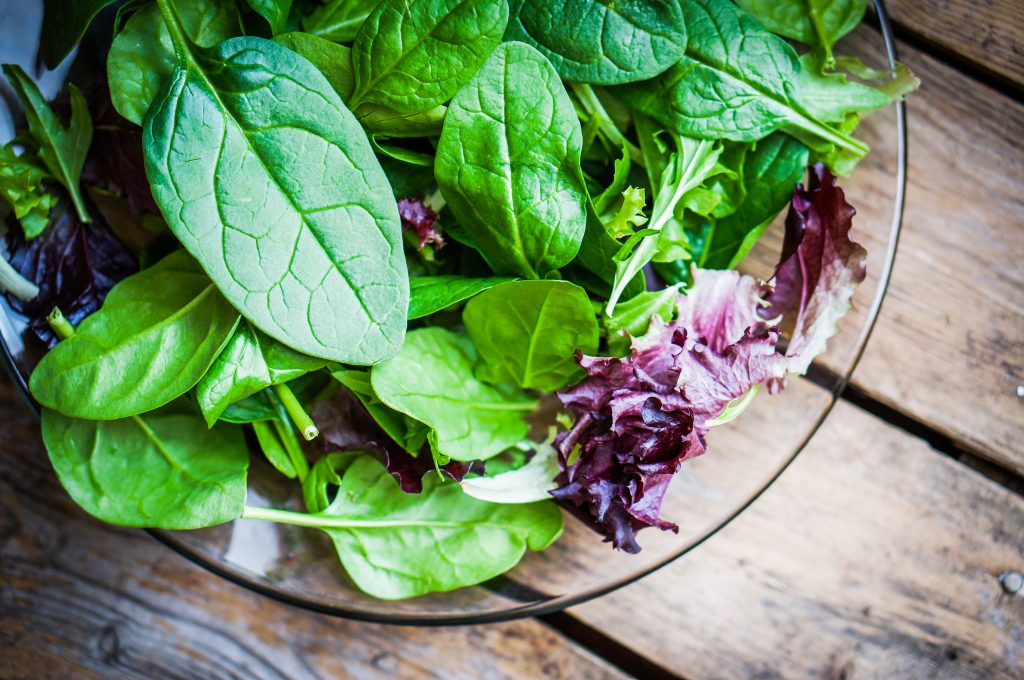This isn’t about “emotional eating.” Eating to fill an emotional void often comes at the cost of your health – like binging on fast foods in times of stress.
Rather than using quick, empty food as an emotional crutch, I’m talking about investing in yourself with quality, nutrient rich foods that can elevate your mood by giving your body what it really needs!
So, how does food influence our mood?
It affects the body’s metabolism, hormones and neurotransmitters (mood chemicals that are produced in the brain), and these in turn influence our emotions, concentration and energy, according to Dr. Nishi Dhawan, who is co-founder (along with Dr. Bal Pawa) of the Westcoast Women’s Clinic in Vancouver.
Proteins, carbohydrates and vitamins in foods work to keep our metabolism, hormones and neurotransmitters in check, which also balances our moods. By contrast, consuming too much sugar, alcohol and caffeine can cause low moods by bringing on an inflammatory response in the nervous system, says Dhawan.
There are foods that can help you achieve your desired moods. Here’s what to try:
The foods to eat to be calm and relaxed
- Pumpkin seeds, leafy greens and almonds: Magnesium, found in pumpkin seeds and leafy greens, is a calming mineral that gets depleted when we’re stressed. For people experiencing more than average stress, a study in Medical Hypotheses suggests supplementing with 150 milligrams of magnesium a day to elevate moods. And to aid in sleep, snack on almonds and pumpkin seeds, which are both high in calming, sleep-enhancing gamma aminobutyric acid and tryptophan.
- Wine: In addition, enjoying a glass of red or white wine a few times a week can help reduce the fight-or-flight hormone adrenalin, resulting in a more relaxed mood and an improved memory, says Holford.
Foods that helps you avoid anxiety and depression
- Camomile tea with a slice of lemon: Drinking herbal tea such as camomile relieves anxiety by aiding the nervous system, says Dhawan. And vitamin C, found in lemons, helps the adrenal and immune systems cope with stress. In periods of high stress, vitamin C is released in large amounts and its stores are rapidly depleted. “People who have low vitamin C levels have been shown to have an increased stress response,” explains Dhawan.
- Seafood, Brazil nuts, red meat, whole grains and legumes: Selenium found in these foods may reduce anxiety and improve mild depression. That’s because the amino acid tyrosine, which increases your “happy” hormone dopamine, is selenium-dependent. Taking a daily supplement of selenium for seven weeks improved mild and moderate depression in 16 elderly participants in a Texas Tech University study.
– via www.besthealthmag.ca
There’s no doubt that a diet full of whole foods is best for your health and happiness, but certain foods are super heroes when it comes to elevating your mood and helping to balance your hormones. Below are some of the best natural answers to get the nutrients your body needs to feel and function at your best!
Nature’s Best Mood Balancers
Blueberries
Anthocyanins are the pigments that give berries like blueberries and blackberries their deep color. These antioxidants aid your brain in the production of dopamine, a chemical that is critical to coordination, memory function, and your mood. Also, as TIME reported:
“Research has also shown that blueberry eaters experience a boost in natural killer cells, ‘a type of white blood cell that plays a vital role in immunity, critical for countering stress,’ says Cynthia Sass, MPH, RD, Health’s contributing nutrition editor.”
Pistachios
One study found eating two servings of pistachios a day lowered vascular constriction during stress, which means the load on your heart is reduced since your arteries are more dilated. Not to mention, you might find the rhythmic act of shelling pistachios therapeutic, as doing a repetitive activity can help quiet racing thoughts in your head.
Pistachios are at high risk of contamination by a carcinogenic mold called aflatoxin and may be bleached or fumigated during processing; choose organic pistachios and avoid those that are dyed, bleached, or show signs of decay.
Seeds
Magnesium, which acts as a precursor for neurotransmitters like serotonin, is well-known for its role in helping to regulate your emotions and enhance well-being. Dr. Carolyn Dean, a medical and naturopathic doctor, has studied and written about magnesium for more than 15 years. The latest edition of her book, The Magnesium Miracle, details 22 medical areas that magnesium deficiency triggers, including anxiety, panic attacks, and depression.
Seaweed and green leafy vegetables like spinach and Swiss chard can be excellent sources of magnesium, as are some beans, nuts, and seeds, like pumpkin, sunflower, and sesame seeds. Avocados also contain magnesium. Juicing your vegetables is an excellent option to ensure you’re getting enough of them in your diet.
Avocado
Avocados provide close to 20 essential health-boosting nutrients, including potassium, vitamin E, B vitamins, and folate, and, according to research published in the Nutrition Journal, eating just one-half of a fresh avocado with lunch may satiate you if you’re overweight, which will help prevent unnecessary snacking later.
Those who ate half an avocado with their standard lunch reported being 40 percent less hungry three hours after their meal, and 28 percent less hungry at the five-hour mark compared to those who did not eat avocado for lunch. The study also found that avocados appear helpful for regulating blood sugar levels. This combination of satiety and blood-sugar regulation can help keep your mood steady, even in times of stress.
– via Mercola.com
Do you know of any great recipes that incorporate these great whole foods?
